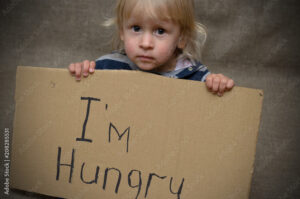For me, this is what debating feels like! I have great arguments in my brain, but when I open my mouth, my mind empties and nothing comes out how it should!
@melissateligades #haveyoueverhadadream #thinkingabout #eminem #quadriplegic #humor #funny
 This debate was a hard one for me to argue the disagreeing side. As an educator these days, you don’t have to look very far to see the negative impacts of social media on students and their social interactions. The change I see occur between students in grades four or five and students in grades 6 and 7 in my school always makes me stand back and marvel at how quickly these little people change and grow. One of the main differences between these two groups of students is their access to technology and social media. In my community, grade 6 tends to be when most of our students get their own cell phones and some device freedom. This is also when they begin to test the boundaries of school expectations and desperately try to fit in with their peers. It doesn’t seem like much of a reach to say that access to social media is making an already socially difficult time in students’ lives even harder.
This debate was a hard one for me to argue the disagreeing side. As an educator these days, you don’t have to look very far to see the negative impacts of social media on students and their social interactions. The change I see occur between students in grades four or five and students in grades 6 and 7 in my school always makes me stand back and marvel at how quickly these little people change and grow. One of the main differences between these two groups of students is their access to technology and social media. In my community, grade 6 tends to be when most of our students get their own cell phones and some device freedom. This is also when they begin to test the boundaries of school expectations and desperately try to fit in with their peers. It doesn’t seem like much of a reach to say that access to social media is making an already socially difficult time in students’ lives even harder.
 While doing the reading for the disagree side of this debate, I was surprised to find research that does not support a direct relationship between adolescent use of social media and adolescent mental illness. I found it quite interesting to read about some of the fears and facts surrounding social media use by children. While I agree that social media impacts children’s lives, I also wonder about the accuracy of some of the claims and whether adequate research supports them. Children live in a very different world than I grew up in; the world has changed dramatically over the past 10 years. We live in an ongoing recession, and the COVID-19 pandemic has drastically changed society. Today, children live in a world that is more uncertain than ever. Undoubtedly, social media use can add even more stress and uncertainty to student lives and provide easy access to dangerous spaces and people whom students may otherwise not have encountered in their lives without social media. The world has become small, and danger lurks around every corner. Whether or not we want technology in our lives, this is the world that we live in and the world that we must learn to navigate.
While doing the reading for the disagree side of this debate, I was surprised to find research that does not support a direct relationship between adolescent use of social media and adolescent mental illness. I found it quite interesting to read about some of the fears and facts surrounding social media use by children. While I agree that social media impacts children’s lives, I also wonder about the accuracy of some of the claims and whether adequate research supports them. Children live in a very different world than I grew up in; the world has changed dramatically over the past 10 years. We live in an ongoing recession, and the COVID-19 pandemic has drastically changed society. Today, children live in a world that is more uncertain than ever. Undoubtedly, social media use can add even more stress and uncertainty to student lives and provide easy access to dangerous spaces and people whom students may otherwise not have encountered in their lives without social media. The world has become small, and danger lurks around every corner. Whether or not we want technology in our lives, this is the world that we live in and the world that we must learn to navigate.

One of the ongoing problems in any technological debate is the issue of methodologically sound research being able to keep up with technological innovations. Every day, there seems to be a technological breakthrough, and these innovations are rapidly being introduced to social media platforms. The lines between reality and fiction in the technological world seem to no longer exist, and children are being overwhelmed with information they don’t know how to analyze critically. Academic research has always been slow to evolve to include the social sciences and technological advancements. Studying the impacts of technology requires new methodologies and longitudinal studies that can accurately capture the many complexities of living in a technological world. Unfortunately, one of the problems researchers face in a longitudinal study is that technology is changing so fast that the variables of their studies change over time, making it difficult, if not impossible, to interpret results accurately.
 There is no question in my mind that social media is drastically impacting our children. However, the blanket statement that social media is ruining childhood is extreme. While social media has risks, there are also several positives that children can benefit from that should not be discounted. As we work to find ways to keep children safe online, we also need to look at the challenges they face in their offline lives and address those areas as well. Placing all of the blame for the current child mental health crisis on social media seems a bit irresponsible. Just as we have seen previous generations struggle to accept innovations such as drive-in movies, comic books, and other things we now take for granted, we must accept that social media is here to stay and find ways to regulate it that support positive experiences for the children who use it.
There is no question in my mind that social media is drastically impacting our children. However, the blanket statement that social media is ruining childhood is extreme. While social media has risks, there are also several positives that children can benefit from that should not be discounted. As we work to find ways to keep children safe online, we also need to look at the challenges they face in their offline lives and address those areas as well. Placing all of the blame for the current child mental health crisis on social media seems a bit irresponsible. Just as we have seen previous generations struggle to accept innovations such as drive-in movies, comic books, and other things we now take for granted, we must accept that social media is here to stay and find ways to regulate it that support positive experiences for the children who use it.
Hi Amy,
I have to disagree with you when you say that “it is extreme to say that social media is ruining childhood.” When you see how they waste their time on social media, how they use it to put unrealistic standards on themselves and their parents as well, and the devastating effects it has on their mental health, I think it is ruining our kids. What is the worst part is that we, parents, are unprepared and don’t have the right skills to protect our youth.
Hi Amy! You aren’t the only one who has trouble making the smart thoughts in your head also sound good with words aloud, BUT I do think you did a GREAT job arguing the disagreeing side yesterday. I think you definitely had the tougher side to argue. I actually agree with you when you say that “it is extreme to say that social media is ruining childhood.” I think that social media has the POSSIBILITY to ruin childhood, and that it is ruining/or at least hurting many childhoods but that blanket statement is hard to apply to all children. I think when it comes to social media, how it affects children really depends on the parenting they receive. If children are taught how to be responsible and given limitations to the amount of access they have, I don’t think social media will for surely ruin childhood. I think big problems arise when children have no restrictions on their social media use, when parents aren’t monitoring their child’s online lives, and when kids have 24/7 access to devices.
Hey Amy!
I enjoyed reading your reflection! I have taught grades 4/5 and then made the switch to 6/7 and I cannot agree with you more that the changes I see in those ages are HUGE when it comes to seeking a place to fit in with their peers and the search for acceptance!!
You make such a good point with research and the problem of how quickly technology is advancing. All of the important academic research simply cannot withstand the ever-changing world of technology, specifically with social media. Great job bringing this point up!!
We agree, and I mentioned in my blog too, that I do not believe social media should be the sole reason for “ruining childhood”!
Thanks for such a great reflection, Amy!
Thanks for the response Amy! I have to say your side of the debate was challenging and you presented it very well! It is interesting to me that there is not a whole lot of research supporting social media and mental health, it will be interesting in the years to come if longitudinal studies start diving into this topic!
Thank you for sharing this insightful reflection! Your discussion on the challenges of debating social media’s impact on children resonated with me, especially about feeling less articulate. The rapid changes in behaviour and the dual nature of social media’s influence are critical points that educators and parents must consider. Your balanced perspective on regulation and understanding highlights this issue’s complexity. Keep sharing your thoughtful insights!
Hi Amy. I enjoyed your discussion and your insights on this very challenging debate. Social media and its influences on children are complex and parenting with caution is very much the answer. As I am also a social media person myself, who needs to keep in touch with others, I cannot excuse myself from its influence. But I am worried about it for children, teenagers, and even some adults.